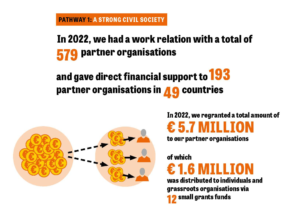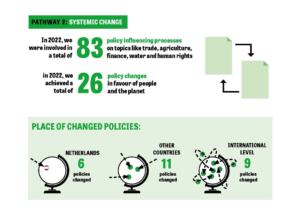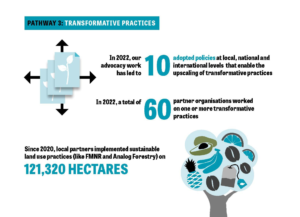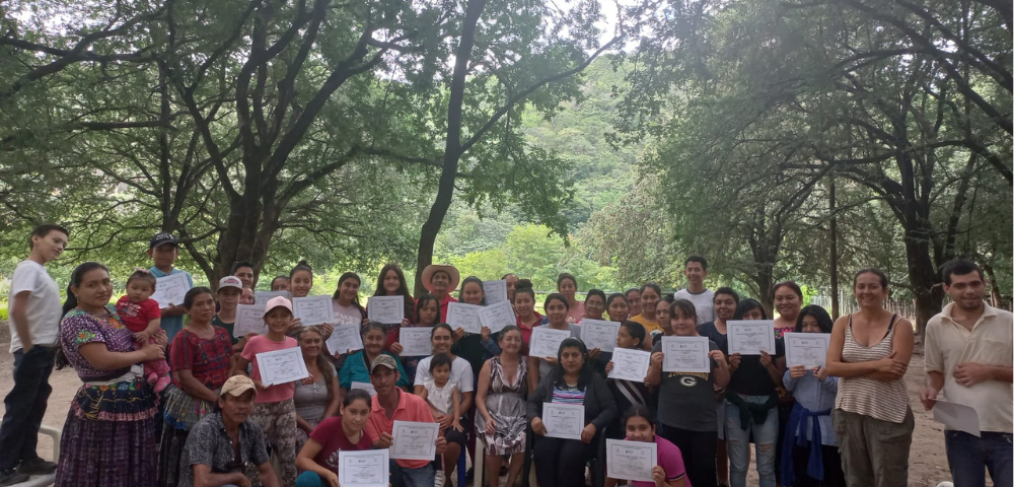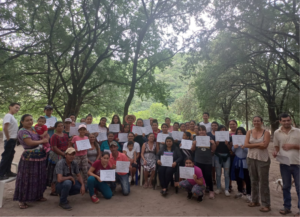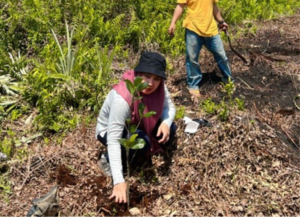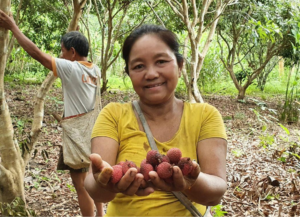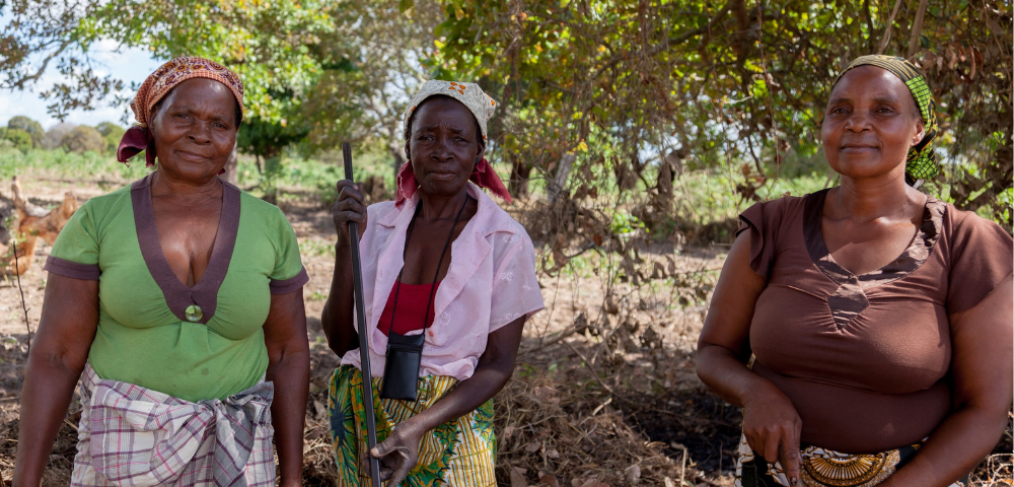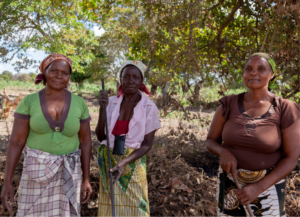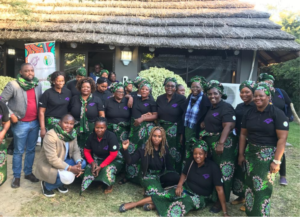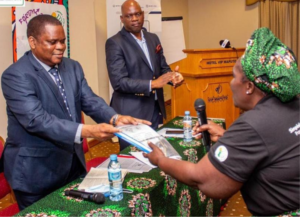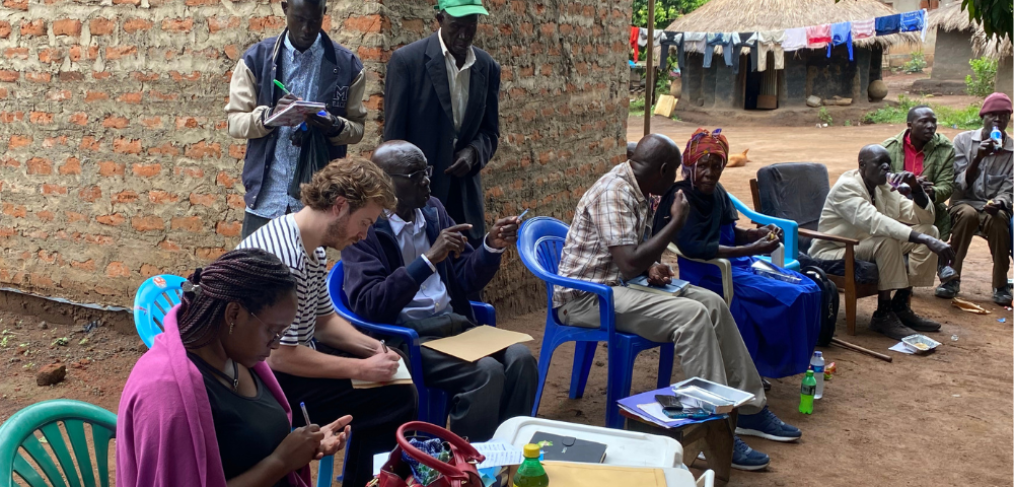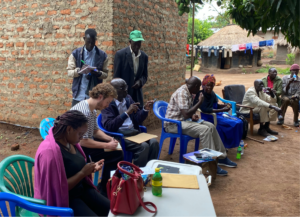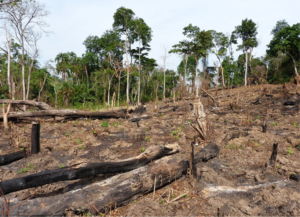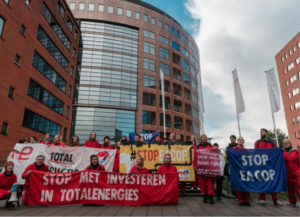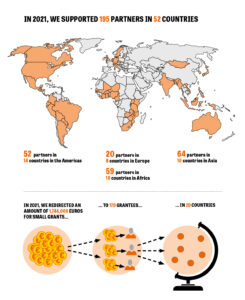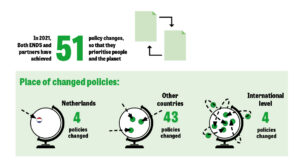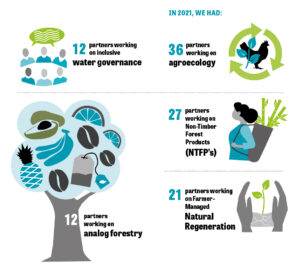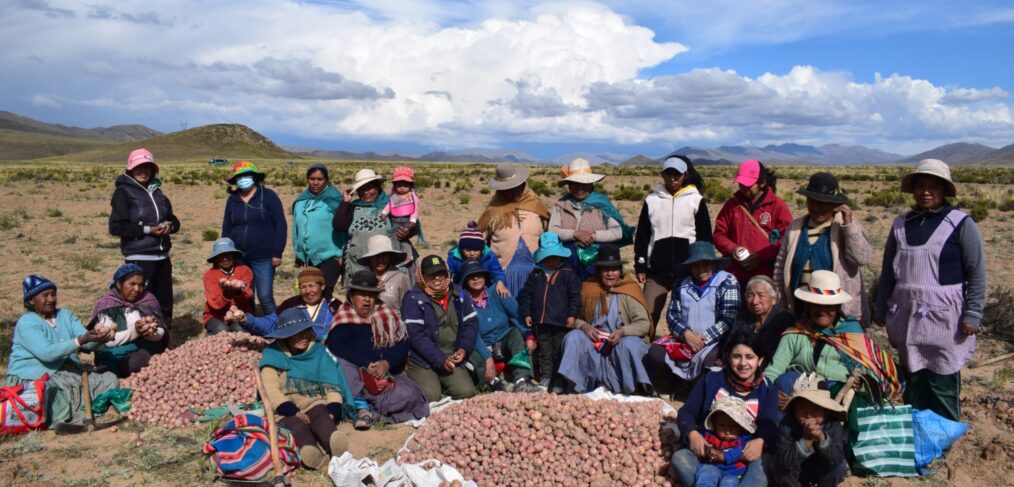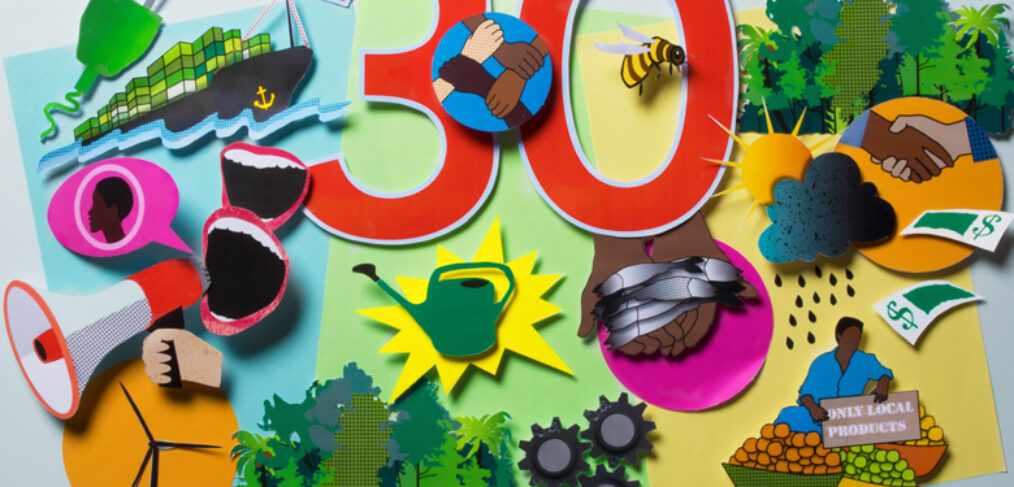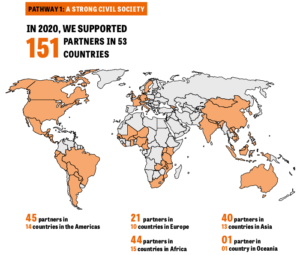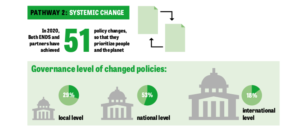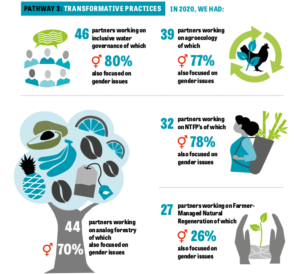In the Netherlands and around the world, there is growing awareness that the current economic system is not working. Diverse social movements let their voices be heard in 2023, calling out loud and clear for justice and systemic change. In the Netherlands, Extinction Rebellion activists occupied a highway to bring attention to the urgent need to end fossil fuel subsidies – a policy Both ENDS has long advocated for. In Argentina, Indigenous peoples mobilised in resistance to the lithium rush, which threatens their communities and the fragile ecosystems they have long cared for. In Asia, women environmental human rights defenders have built a regional movement against mining and for democratic governance and corporate accountability. They are demanding recognition of women’s leadership in protecting life systems, cultures, biodiversity and sustainable livelihoods. Their efforts give us hope in a world facing multiple crises.
At the same time, the challenges we face are undeniably grave. At the end of the year, a far-right party won the most seats in the Dutch Parliament. There is a serious risk that the Netherlands will renege on its commitment to international cooperation and turn its back on the rest of the world. Globally, more than sixty elections are set to take place in 2024 and the signs are worrisome. Democracy is threatened in many countries and civic space is shrinking across the world.
The future we see
In the face of these challenges, we are convinced thattogether with partners worldwide, we can and must tackle the root causes of social and environmental injustice. This entails both laying bare the problems, as well as showing the world the way forward – helping people see that another world is possible. To that end, in 2023, we were pleased to organise ‘The Future We See’ series. We opened the doors of our historic office in Utrecht to local students and other guests with a live talk show and video podcast focused on inspirational and visionary systems and solutions. In three lively events, we put the spotlight – literally and figuratively – on practitioners who are actively engaged in or creating food systems, economic systems, and decision-making systems based on principles of justice, environmental sustainability and democratic, participatory processes.
Of course, one purpose of the series was to connect what’s happening here in the Netherlands with the crucial work of our partners and allies around the world. In a panel on food systems, Rosinah Mbenya, from Participatory Ecological Land Use Management (PELUM) Association Kenya, shared the stage with three panelists based in the Netherlands, and spoke about the group’s efforts to advance agroecological methods and centre Indigenous knowledge in Kenya. The panelists exchanged their experiences and thoughts on sustainable farming practices and policies. In a session on economic systems, Jane Nalunga, from the Southern and Eastern Africa Trade Information and Negotiations Institute (SEATINI) joined Winne van Woerden from the Amsterdam-based Commons Network in a lively discussion about degrowth and the need to redesign the economy based on indicators of well-being. In a session on inclusive and democratic decision-making, we heard how villagers of Mendha-Lekha, India, are successfully implementing traditional consensus-based forms of self-rule that are based on similar values and agreements being practised in citizen assemblies organised in the Netherlands and worldwide. By supporting and linking these diverse systems and practitioners, we are convinced that a better world is in the making.
From principles to policy
Meanwhile, in our advocacy, we worked to defend and create space for that better world. A manifesto on Dutch agricultural policy, supported by more that 70 civil society and farmer organisations, as well as academics and members of the private sector, placed particular emphasis on the need to support robust local food systems, small-scale producers and preserve food security in countries in the Global South. We called on the Dutch government to examine the Netherlands’ role as a global trader and consumer of food and agricultural products, and to reduce the country’s ecological impact.
In a series of workshops together with the members of the Fair, Green and Global (FGG) Alliance, we articulated our shared vision and principles for a feminist foreign policy on trade and investment, and worked out what this would mean in terms of policy. At a session during the international Feminist Foreign Policy Conference organised by the Dutch government, we urged policymakers to reorient trade, investment and tax policies so they prioritise women’s rights, care and the health of the planet above profit. Our analysis and recommendations, published in Reimagining Trade and Investment through a Feminist Lens, served as input for the development of the new Dutch Feminist Foreign Policy.
Similarly, the Transformative Water Pact, co-developed by some 40 organisations during a series of online roundtable discussions, describes ten principles that concern the root causes of the current water crisis, the diverse values pertaining to water, and the need to govern our waters as a commons. Launched in anticipation of the UN Water Conference 2023, the pact serves as a compass pointing towards the type of decision-making processes, institutions and power relations that are needed to foreground environmental justice, equity and care in relation to water.
Confirmation that we’re on track
We were very pleased to receive confirmation in 2023 that our approaches and strategies are bearing fruit and are highly valued by partners. Mid-term reviews of our two strategic partnerships with the Dutch Ministry of Foreign Affairs, FGG and the Global Alliance for Green and Gender Action (GAGGA), revealed that the themes of the two alliances – trade and value chains, and gender-just climate action – are extremely relevant. Both FGG and GAGGA are contributing to important results, from strengthening women’s leadership, resilience and capacities to advance gender-just climate solutions at the local level, to bringing about major policy shifts – such as divestment from fossil fuels – at the global level. Partners also confirmed that our ways of working enable them to set their own priorities and lead on their work in their local and national contexts. These findings were echoed in positive feedback from partners as part of our ‘Examination of Power’ process. In an anonymous survey, most partners reported feeling supported by Both ENDS, with high levels of mutual trust, and direct, clear and open communication.
Donors also recognise the value of our work. In 2023, together with our GAGGA partners, we succeeded in increasing support for locally-led gender-just climate action. New funding from Global Affairs Canada, the Chanel Foundation and Re:Arc Institute has enabled us to expand and deepen the work of the GAGGA network. And with the generous support of the Dutch Postcode Lottery, we’re piloting a new approach to funding and reporting – ‘Dare to Trust’ – that is entirely unrestricted and flexible.
Changes, challenges and opportunities ahead
The year 2023 marked some major changes at Both ENDS. After 15 years of service, Daniëlle Hirsch, stepped down as Director of Both ENDS to take up her new role as a Member of Dutch Parliament. After eight years as chair of the Both ENDS Board, Paul Engel recently passed the baton to Leida Rijnhout. We wish Daniëlle and Paul the best of luck and are grateful to them for their long-term commitment to Both ENDS. Fortunately, they leave behind a strong and resilient organisation. Both ENDS’ self-organised structure helps to ensure that we have a deep reservoir of talent and leadership.
Amidst these organisational changes is a shifting political landscape. A more restrictive and challenging context worldwide requires us to step up our collective struggle with partners. One of the lessons from the GAGGA mid-term review was that our work to build global solidarity and support collective care is essential in the current context of increased repression and structural violence faced by many partners. In the coming months, we will take this and other lessons forward as we look to the horizon and develop a new five-year strategy. Working hand-in-hand with partners and allies around the world, we know that today’s challenges will be tomorrow’s opportunities. Working with our partners and allies around the world, we are committed to contributing to the urgent systemic changes needed to achieve a healthy, just and bright world for all, now and in the future.
Annelieke Douma and Karin van Boxtel, Interim Directors
Leida Rijnhout, Chair of the Board

Annelieke Douma en Karin van Boxtel, Interim Directors

Leida Rijnhout, Chair of the Board

